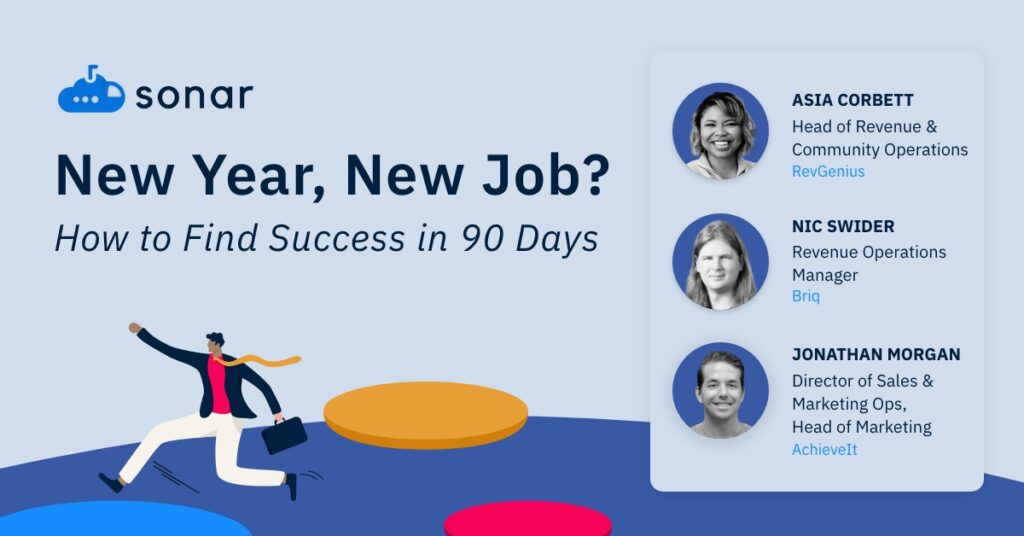New Year, New Job? How to Find Success in 90 Days
Starting a new RevOps role with a plan in place for your first 90 days can set you up for long-term success. But what are the most important things to focus on in your first three months? And what should you do if your company doesn’t have resources or training to help?
WATCH NOW

